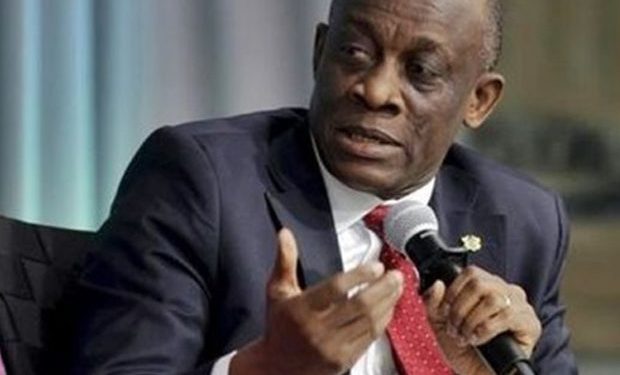Seth Terkper Touts Reintroduction of Sinking Fund to Manage Ghana’s High Public Debt
Mr Terkper argues that the nation’s debt would not have escalated to this extent had the current government continued the practice of using the sinking fund to pay down borrowed funds.

Former Finance Minister Seth Terkper has announced that the National Democratic Congress (NDC) plans to reintroduce the sinking fund as a strategy to manage Ghana’s burgeoning debt stock if it returns to power.
The nation’s public debt reached GHS 761.1 billion ($51.1 billion) as of July 31, 2024, marking a significant rise from GHS 587.7 billion ($53.5 billion) earlier in the year, according to current Finance Minister Dr. Mohammed Amin Adam.
- Advertisement -
The surge in debt has been largely attributed to the depreciation of the local currency.
- Advertisement -
As of June 2024, Ghana’s external debt stood at GHS 452.0 billion, representing 43.0% of GDP, while domestic debt amounted to GHS 290.0 billion, or 27.6% of GDP.
Mr Terkper argues that the nation’s debt would not have escalated to this extent had the current government continued the practice of using the sinking fund to pay down borrowed funds.
“We shouldn’t have been in the current position we are now in terms of our debt stock, because we set up a sinking fund so that when we go to borrow from the market, we use it to repay,” Mr Terkper stated during an interview on TV3’s Hot Issues.
- Advertisement -
He emphasized that the NDC would revive the sinking fund as a key measure to manage the country’s debt, citing its previous success under his administration.
“So we will bring back the sinking fund when we come back to office, and it will be one of the solutions to managing our debt stock and we know from our experience that it worked,” he added.
The sinking fund, which was depleted following a $250 million drawdown by the current government to combat the economic impacts of the COVID-19 pandemic, was initially established to ensure that borrowed funds were repaid, thereby preventing the kind of debt escalation Ghana is now facing.
Mr Terkper’s remarks underscore a broader debate over fiscal management and debt sustainability as Ghana grapples with its exclusion from the international capital markets due to its current debt situation.
Source:norvanreports.com
- Advertisement -



